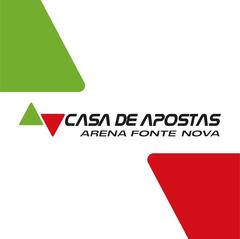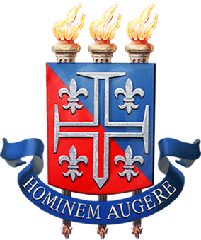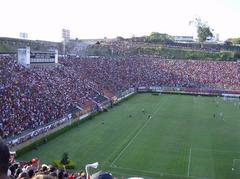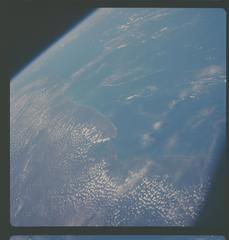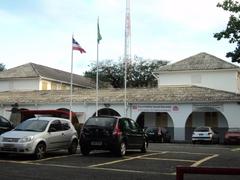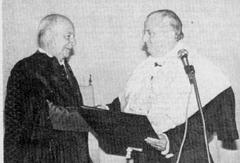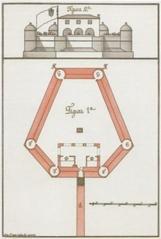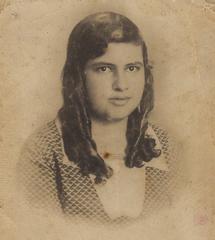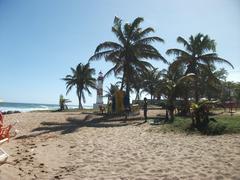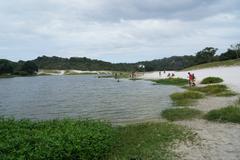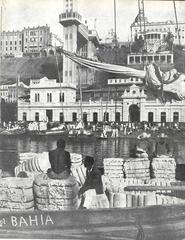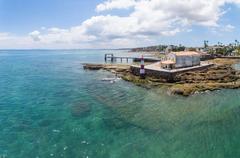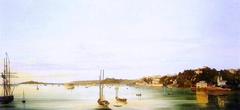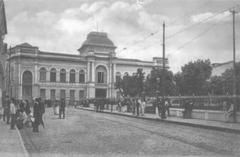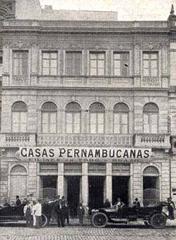Nigeria Cultural House Salvador Brazil: Visiting Hours, Tickets, and Travel Guide
Date: 14/06/2025
Introduction
Located in the storied heart of Salvador’s Pelourinho district, the Nigeria Cultural House (Casa da Nigéria) stands as a vibrant symbol of Afro-Brazilian heritage and the enduring ties between Nigeria and Brazil. This cultural institution not only commemorates the legacy of the transatlantic slave trade and the Yoruba influence on Bahian culture, but also serves as a dynamic hub for education, artistic expression, and cross-continental exchange. For visitors interested in Salvador’s history, culture, and living traditions, the Nigeria Cultural House offers immersive exhibits, workshops, and events that provide deep insight into the African roots of Bahia. This guide covers everything you need to plan your visit: opening hours, tickets, accessibility, nearby attractions, and expert tips for a memorable experience (UNESCO, Modern Ghana, Travel Noire).
Table of Contents
- Historical Background
- Visiting the Nigeria Cultural House
- Exhibitions and Programs
- Visitor Experience
- Events and Community Engagement
- Nearby Attractions
- Travel Tips
- Frequently Asked Questions (FAQ)
- Conclusion and Recommendations
- References
Historical Background
Origins and Significance
The Nigeria Cultural House is a testament to the enduring relationship between Nigeria and Salvador’s Afro-Brazilian community. Its roots extend to the era of the transatlantic slave trade, which brought waves of Yoruba-speaking Africans to Bahia. Their traditions left a profound mark on Salvador’s religious practices (such as Candomblé), music, and cuisine (Modern Ghana).
In the 19th century, some Afro-Brazilians returned to West Africa, forming the influential Aguda community in Lagos and further strengthening Brazil-Nigeria cultural ties (Wikipedia: Brazil–Nigeria relations). In recognition of these connections, the Nigeria Cultural House was established in Pelourinho—a district once associated with oppression but now a vibrant epicenter of Afro-Brazilian identity (UNESCO, History Hit).
Establishment
The Bahia government donated a historic building to Nigeria in 1998, and after years of planning, the Nigeria Cultural House officially opened in 2008. Inaugurated by Nigerian officials, the center serves as a platform for showcasing Nigerian art, history, and fostering ongoing cultural exchange between the two nations (Modern Ghana).
Visiting the Nigeria Cultural House
Location and Access
- Address: Rua das Laranjeiras, 19, Pelourinho, Salvador, Bahia, Brazil.
- Getting There: Easily reached by taxi, ride-share, or public transport to Praça da Sé or Largo do Pelourinho. If you are staying nearby, walking is the best way to explore the area’s historic sites.
Visiting Hours
- Tuesday to Sunday: 10:00 AM – 6:00 PM
- Closed: Mondays and major Brazilian holidays
- Note: Hours may vary during festivals or special events—always check the official blog or Salvador tourism site for updates.
Tickets and Admission
- General Admission: Free (donations encouraged to support programming)
- Special Exhibitions/Workshops: May require a nominal fee or reservation
Accessibility
- The center is wheelchair accessible, with ramps and accessible restrooms. However, Pelourinho’s cobblestone streets may pose challenges for those with mobility issues.
Languages
- Most signage is in Portuguese; English-language guides and brochures are available, and guided tours can be arranged in multiple languages.
Exhibitions and Programs
Permanent Exhibits
- Traditional Nigerian Artifacts: Masks, textiles, musical instruments, and ceremonial objects representing Yoruba, Igbo, and Hausa cultures.
- Historical Documents: Archival materials tracing the slave trade and Afro-Brazilian communities.
- Contemporary Art: Rotating exhibitions by Nigerian and Afro-Brazilian artists, exploring migration, identity, and resilience.
Cultural Workshops and Performances
- Drumming and Dance: Workshops on capoeira, samba-reggae, and traditional Nigerian rhythms.
- Language Classes: Introductory Yoruba lessons.
- Culinary Demonstrations: Nigerian and Bahian dishes like jollof rice, acarajé, and moqueca.
- Music and Art Performances: Collaborative events with local groups such as Olodum (londonandtheworld.com).
Special Events
The center participates in major Salvador festivals, including Carnival and the Festa de Iemanjá, with parades, lectures, and performances.
Visitor Experience
Guided Tours
- Available in Portuguese, English, and sometimes Yoruba.
- Offer comprehensive insights into the cultural, historical, and artistic significance of the exhibits.
- Free walking tours of Pelourinho often include a stop at the Nigeria Cultural House (londonandtheworld.com).
Facilities
- Restrooms: Available on-site.
- Café: Serving Nigerian and Bahian snacks.
- Gift Shop: Crafts, books, and traditional fitas (wish ribbons).
- Photography: Permitted (no flash or tripods in certain galleries).
Safety
- Pelourinho is lively and generally safe during the day, but be vigilant for petty theft.
- Avoid isolated streets after dark; use registered taxis or ride-shares in the evening (aboveusonlyskies.com).
Cultural Etiquette
- Dress modestly, especially during cultural/religious activities.
- Always ask permission before photographing people or ceremonies.
- Support local artisans by purchasing crafts from the center or markets (tournigeria.gov.ng).
Events and Community Engagement
- Lectures: Covering the transatlantic slave trade, Yoruba religion, and contemporary Afro-Brazilian issues.
- Festivals: Active role in Carnival, Festa de Iemanjá, and other community events.
- Collaborations: With Nigerian embassies, cultural organizations, and local terreiros for ongoing exchanges and residencies.
Nearby Attractions
- Afro-Brazilian Museum: Ritual objects and art exploring African heritage in Brazil (londonandtheworld.com).
- São Francisco Church: Baroque masterpiece with lavish gold interiors (nextstopbrazil.com).
- Mercado Modelo: Large market for crafts and souvenirs (oceanmanswim.com).
- Elevador Lacerda: Panoramic views of All Saints Bay.
Travel Tips
- Best Time to Visit: Weekdays and mornings for fewer crowds; festival periods for vibrant activities.
- Footwear: Wear comfortable shoes for cobblestone streets.
- Weather: Hot and humid—bring water, sunscreen, and a hat.
- Language: Basic Portuguese is helpful; translation apps can assist (Lonely Planet).
- Currency: Brazilian Real (BRL). Cards widely accepted, but carry some cash (World Nomads).
- Safety: Stay alert, especially in crowds or after dark.
- Accessibility: Contact the venue if you have specific needs.
Frequently Asked Questions (FAQ)
Q: What are the Nigeria Cultural House’s visiting hours?
A: Tuesday to Sunday, 10:00 AM to 6:00 PM. Closed Mondays and major holidays.
Q: Is there an admission fee?
A: General admission is free; special events or workshops may charge a nominal fee.
Q: Are guided tours available?
A: Yes, in Portuguese, English, and sometimes Yoruba—arrange on-site or in advance.
Q: Is the center accessible for people with disabilities?
A: The building is accessible, but surrounding streets may pose challenges.
Q: Can I take photos inside?
A: Photography is allowed; flash and tripods may be restricted in some galleries.
Q: Are workshops and performances available?
A: Yes, especially during festivals and special events.
Conclusion and Recommendations
The Nigeria Cultural House in Salvador is not only a museum but a dynamic center for cultural exchange, learning, and community engagement. It bridges continents and generations, celebrating the resilience, creativity, and ongoing connections between Nigeria and Bahia. With its accessible exhibitions, interactive workshops, and vibrant events, it offers an enriching experience for all visitors. Plan your trip during festivals for special programming, combine your visit with other Salvador historical sites, and connect with the center through its official channels for updates. For the latest events and guided tours, download the Audiala app and follow the Nigeria Cultural House on social media.
References
- UNESCO World Heritage Centre: Historic Centre of Salvador
- Modern Ghana News on Nigeria Cultural House
- Travel Noire: Salvador as the Cradle of Brazil’s Afro-Brazilian Heritage
- PACMA: Ligali Article on Reconnection
- Travel and Tour World: Iemanjá Festival 2025
- Salvador da Bahia Official Tourism Site
- Nigeria Cultural House Blog
- Connect Brazil
- londonandtheworld.com
- nextstopbrazil.com
- oceanmanswim.com
- aboveusonlyskies.com
- tournigeria.gov.ng
- Lonely Planet
- World Nomads
- Brazil Travel Guide
